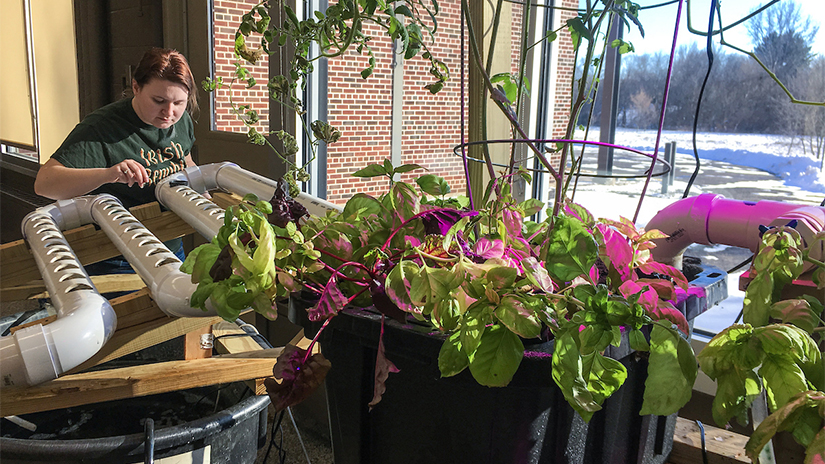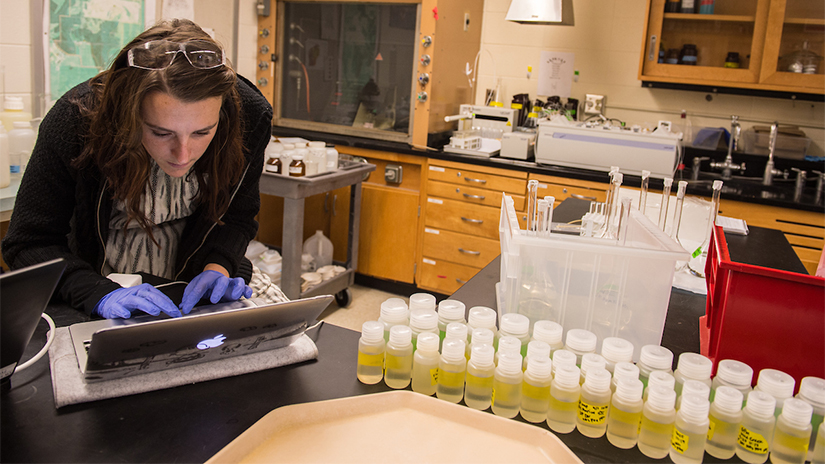UNIVERSITY OF WISCONSIN River Falls
Environmental Engineering
Environmental Engineering
This new program in environmental engineering recently began fall 2020. It is the second engineering program at UW-River Falls. UWRF is engaged in the process of obtaining ABET accreditation of the Environmental Engineering program. This program complements our growing environmental science major as well as our existing agricultural engineering and crop and soil science majors.
If you are passionate about our natural world and want to be a part of creating solutions for society's complex environmental problems, this program may be for you.
Examples of courses students can take include:
- ENVN 380 Sustainability in Environmental Engineering
- ENVN 430 Water Quality Modeling
- AGEN 435 Nonpoint Source Pollution Engineering
- ESM 303 Environmental Policies and Administration
- GENG 368 CAD for Civil Design
Learning Outcomes
In the environmental engineering program, students will learn how to:
- Identify and solve complex engineering problems by applying their knowledge of engineering, science and mathematics
- Apply engineering design to produce solutions to environmental problems that consider public health, safety and welfare, as well as global, cultural, social and economic factors
- Recognize ethical and professional responsibilities in engineering situations and make informed judgments
- And more
Career Options
Graduates of the environmental engineering program can enter the job market or pursue graduate school and advanced degree options in areas such as:
- Water resources engineering
- Environmental remediation
- Solid waste management
- Pollution control
- And more
Facilities and Faculty
Over the past four years, UWRF has made a significant investment in its engineering facilities, renovating more than half of the 23,000 square feet of space dedicated to the engineering and engineering technology programs. At the same time, many pieces of test equipment and instrumentation were upgraded.
There has also been an investment in faculty. There are six faculty members dedicated to the engineering programs, supported by colleagues in environmental science, physics, math and other programs. The engineering faculty have diverse areas of expertise, including industry experience in water resources, air quality and solid waste management, and bioprocessing.













